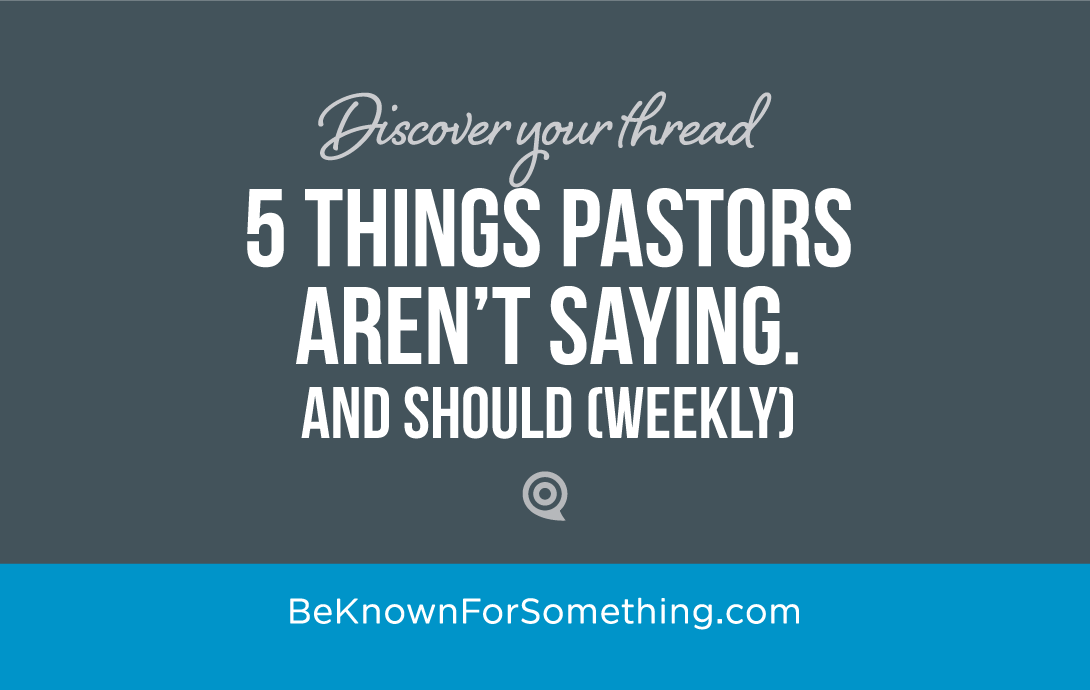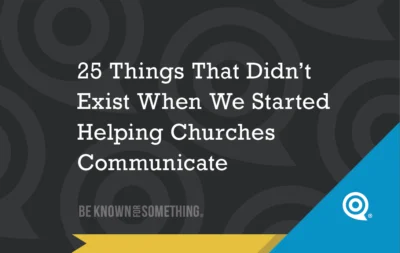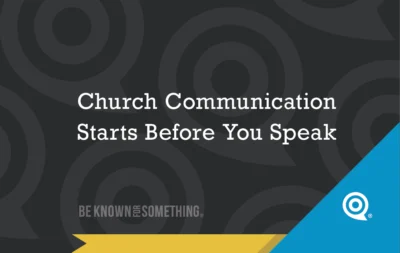Yikes! 5 Things Pastors Aren’t Saying. And Should (Weekly)

I understand. It’s difficult to talk about things Pastors aren’t saying since they juggle so much! They’re responsible for delivering weekly Biblical messages, leadership of staff and volunteers, engaging the congregation, and studying on top of that. Plus, many other tasks go unnoticed too!
The time the Pastor spends as the on-stage church communicator is critical. It needs to be more than just preaching (although that’s a huge priority)! And, of course, everyone else who engages from the stage, needs to be an ambassador of important church communication, messaging, and church branding too — with the teaching Pastor setting the standards and establishing the controls.
What are the church communication things Pastors aren’t saying? Here are 5:
- Not uniting sermons and announcements with a thread. When stage talk feels disjointed; it’s difficult for your congregation to remember and understand. It’s like randomly having sermon points that don’t go together. Instead, help your audience understand the one thread that your church depends on. What you’re known for. Of all the things that Pastors aren’t saying, this is the most critical. Discover a beneficial and needed thread; and control the words consistently.
- Not talking about your church website. Our world relies heavily on the web. As the center of your digital communication hub, assure the audience that you rely on your church website like they should. When your URL isn’t mentioned by you, people think it’s not that important. Instead, your website should be referred to as the go-to place for all ministry: from events to giving opportunities. Not happy with your website? Fix it. It’s a foundational tool for church growth.
- Not talking about how you’re spending the offering. Money talk is often one of the things Pastors aren’t saying enough about. The Bible clearly calls it an act of worship. Plus it’s an outlet for loving the community in a collective impact. All while keeping ministries operating successfully. The Pastor needs to regularly tell stories of life-change and critical intervention because of the offerings received. People will want to give as an act of worship when they understand your church thread’s potential impact and how you rely on their tithes and offerings.
- Not being clear what the “next steps” are. We live in a world of hand-holding. On your website, every page needs to clearly lead to what they should do with the page’s information. The same for your sermon. Itemize what the audience needs to do with the message’s content. If the “next step” isn’t one of the things Pastors aren’t saying, many won’t connect the dots. Introduce the online audience to ways to connect deeper. If they’re in the building, point them to a small group they can attend after service! If you don’t say it? They won’t pursue it.
- Not being promotional (in a good way). A Pastor needs to make the sermon relevant and useful at the beginning. Start where your audience is at and tell them why your sermon will change them. Along the way, talk about other ministries, social media posts, and next week’s sermons. Be excited for how God will use your resources to change them. Promotion isn’t bad. It’s needed.
Want 25 Game-Changing Resolutions?
Related Posts

25 Things That Didn’t Exist When We Started Helping Churches Communicate
Back in 2001, we launched Be Known for Something from the old Krispy Kreme test-kitchen and marketing offices in Winston-Salem,

7 Short-Month Church Communication Wins
February is the shortest month of the year, which makes it perfect for simple church communication improvements that don’t require

Church Communication Starts Before You Speak
Church communication does not begin with a sermon. Instead, it begins the moment someone arrives on your property. Before a


